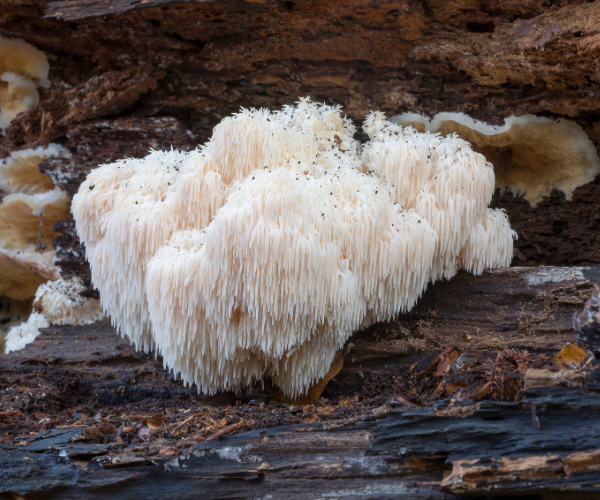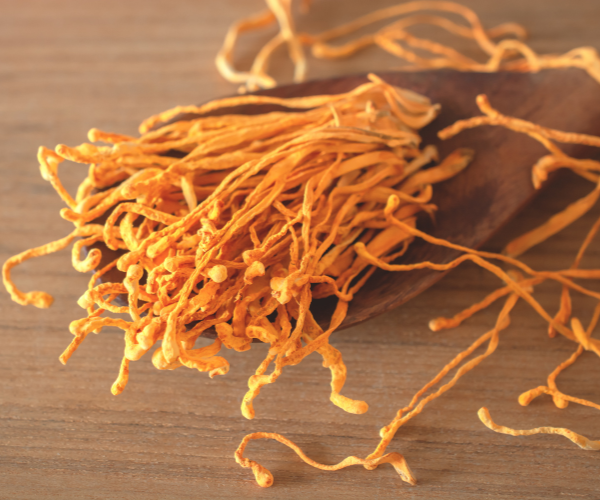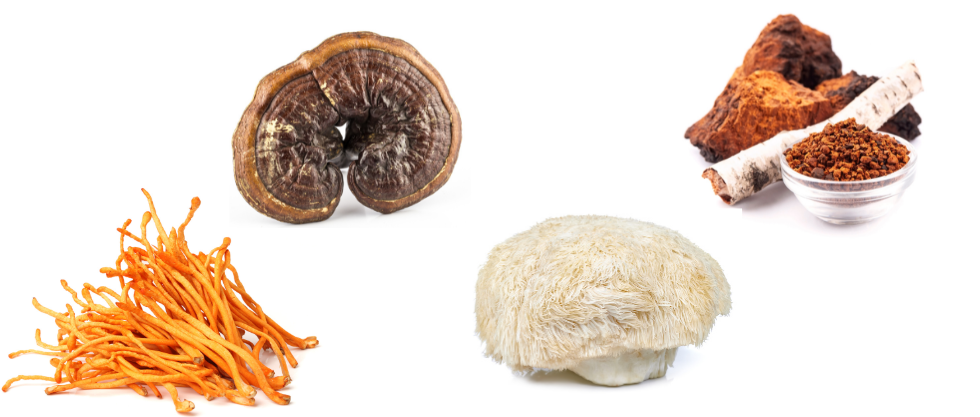Most of the world is already familiar with the fungal family of mushrooms. Almost every culture has an old-world recipe that uses this abundant resource to bring a meal to delicious new heights. But what is less known is how impactful these little additions can be. The potential daily health benefits of mushrooms are just now becoming popular.
Even though mushrooms are a form of fungus, that hasn’t stopped people from using them for millennia. Mushrooms bring savory and nutty flavors to a meal while avoiding adding sodium, fat, or even excess calories. Blended up, one can also disguise their flavor in an array of beverages and sweet treats, reaping the benefits anyway.
On top of that, they’re a potent source of an amino acid known as ergothioneine. That’s a strong antioxidant known for slowing and preventing cellular damage.
Beyond the basics, like healthy fats or minerals, mushrooms offer a special list of benefits. These separate effects are known as mushroom nootropics. These nootropics specialize in helping to improve and fortify mental areas of our well-being.
But what exactly do these nootropics bring to the table? How do mushrooms help us in our daily lives? Today, we’ll cover some of the most popular mushroom families. Let’s look at why you should consider adding them to your daily routine!

Vitality Mushroom Gummies
$10.00 – $85.00
Select options
This product has multiple variants. The options may be chosen on the product page

Odyssey Sparkling Mushroom Elixir
Original price was: $8.00.$5.00Current price is: $5.00.
Select options
This product has multiple variants. The options may be chosen on the product page
What are Mushroom Nootropics?
In short, mushroom nootropics are a substance some label as “cognitive enhancers.”
Ultimately, taking mushrooms daily may help the brain function at its highest capacity. Nootropics provide this option by increasing blood flow to the brain. As a result, that increases oxygen delivery to the brain. It also provides antioxidants, which is always a plus.
The term “nootropics” may be new to some people, but nootropic substances, in general, aren’t. Some of the most well-known nootropics include:
- Caffeine – stimulates effects like alertness, focus, and wakefulness and may improve attention.
- L-theanine – promotes relaxation without causing drowsiness. That makes it ideal for attention enhancement and focus, too.
- Omega-3 Fatty Acids – supports better brain health and mental function.
Are Mushroom Nootropics Safe?
To put it concisely, yes – mushroom nootropics are safe. It’s easy to recommend mushrooms to incorporate into anyone’s daily routine.
Some may be familiar with the abundant number of mushrooms worldwide. However, not everyone has learned about the fungus among us.
Let’s review the numbers to understand better what makes mushroom nootropics special. It’ll also help uncover just how particular their class of mushrooms are.
Currently, there are over 14,000 individual species of mushrooms. Of those 14,000, about 2000 of them are edible for humans. Within the 2,000 edible mushroom varieties, 270 show potential as therapeutic treatments. They offer preventative agents that help human health.
And of those 270 therapeutic mushrooms, we’ll be shining a light on 4 very special super mushrooms in this guide.
How to Get the Health Benefits of Mushrooms Daily
Daily consumption is the best way to get the nutritional value of mushrooms. And the good news is you can disguise the flavor of mushrooms in a variety of ways.
Take our Odyssey Elixir, for example. Each flavor delivers energy, focus, and fruity bliss. It’s chock-full of antioxidants to create lasting vitality.
Our Vitality Mushroom Gummies offer an easy way to take a daily serving and forget about it. They contain 4mg delta-9 THC, too, so you’ll have a fun time.
Benefits of Lion’s Mane
Lion’s Mane is a mushroom that was named after its appearance. With long white shaggy tops, it’s easy to see why they have such a moniker. Much like the other mushrooms we list, the mushroom is chock-full of nutrients.
What does Lion’s Mane do to your brain? Is Lion’s Mane a nootropic? Let’s dig further.
Potential Lion’s Mane Health Benefits
First, let’s get into the nootropic, brain-building benefits that Lion’s Mane brings to the table.
Cognitive Performance
Lion’s Mane is often known as “the smart mushroom,” and that comes as no surprise. The widespread popularity of Lion’s Mane lies in its ability to improve focus, clarity, and memory.
Researchers believe that the anti-inflammatory and antioxidant effects of Lion’s Mane vastly increase blood flow to the brain. It makes sense that it would promote focus, clarity, and better memory for the mind!
Other research suggests Lion’s Mane may help prevent the build-up of amyloid-beta, a brain plaque associated with Alzheimer’s disease.
And Lion’s Mane isn’t limited to its nootropic benefits.
Nerve Health
A unique benefit of Lion’s Mane is that it may promote the creation of a compound called Nerve Growth Factor. Nerve Growth Factor (NGF) is a protein that strengthens existing nerve cells and stimulates the production of new cells. The interaction with NGF may help nerves repair damage faster.
These research findings are particularly promising in the ongoing fight against neurodegenerative diseases like Alzheimer’s and Parkinson’s.
Other Benefits
Overall, Lion’s Mane may also hold the potential to help with:
- Anxiety
- Depression
- Immune system
- And more
Research is ongoing for the mushroom as experts work to unlock all of the potent mysteries it may hold. Regardless, Lion’s Mane is a powerhouse in its own weight class.
Possible Lion’s Mane Side Effects
Overall, most people tolerate the mushroom exceptionally well. However, as with any substance, side effects are possible. These side effects may include skin rashes, nausea, and/or abdominal discomfort.
It’s important to note Lion’s Mane may also interact with certain prescriptions. These may include diabetes treatments and blood-clotting medications like Warfarin. Speak with your doctor before adding the mushroom to your daily routine if you’re currently taking any prescriptions.
 Benefits of Cordyceps
Benefits of Cordyceps
Cordyceps have recently exploded in popularity thanks to media like The Last of Us. Fortunately, these mysterious little lifeforms aren’t the danger they’re cracked up to be.
Since the mushroom is non-toxic to humans, it fits right in with other food-based mushrooms. But what do they offer when it comes to health benefits?
Potential Cordyceps Benefits
The mushroom superfood is gaining traction as a possible source of multiple brain-boosting health benefits. Let’s review some of the most useful benefits and how they can help with day-to-day life.
Stamina and Endurance
Cordyceps may help accelerate the production of Adenosine Triphosphate (ATP) in the brain. ATP acts as the main energy exchange for cells. So, having more of that in production means more efficient delivery to muscle tissue.
The mushroom may boost stamina and endurance performance in athletic fields. More research is underway. However, early signs show promise that the mushroom may help people in sports training or even for personal health.
Beyond physical activity, cordyceps also benefit general heart health. That’s thanks to their natural anti-inflammatory properties and cardioprotective functions.
Cognitive Performance
Cordyceps and their energy-boosting abilities are not limited to just physical performance. The improved energy exchange also helps keep the mind in a “switched-on” setting and focused. To support the release of the new energy, cordyceps encourage the central nervous system and adrenal glands.
Research also shows oxygen uptake helps increase blood flow throughout the brain, which cordyceps may promote. That can feed blood cells and fight mental fatigue.
The extra oxygen and energy routed to the brain help with many functions. These include memory, learning capacity, and general cognitive performance.
TLDR: that means less brain fog and much better productivity.
Immune System Health
Mushrooms have been in traditional Chinese medicine for thousands of years – and Cordyceps is one of them. High levels of antioxidant activity in cordyceps protect the body from oxidative stress. “Oxidative stress” is the accumulation of environmental free radicals within the body. Cordyceps do an exceptional job of helping prevent this buildup.
Possible Cordyceps Side Effects
Everyone is different, so there are potential side effects for anything. Likewise, sudden changes to your daily routine may cause some temporary side effects. Some consumers may find these symptoms uncomfortable, though they are typically always mild.
Some possible cordyceps side effects include:
- Upset stomach
- Dry mouth
- Nausea
- Diarrhea
- Constipation
While none of these issues are inherently dangerous, being caught off-guard isn’t ideal.
Note: people with preexisting health conditions should talk to a doctor before starting any new supplement.
 Benefits of the Reishi Mushroom
Benefits of the Reishi Mushroom
The Reishi mushroom is another body of fungi that has seen extensive use in traditional Chinese medicine. Mayan culture also has a history of utilizing Reishi mushrooms to help fight and even prevent communicable diseases.
Reishi mushrooms are native to North America, Europe, and Asia. They’ve been revered for thousands of years for their medicinal properties.
Some of the earliest mentions of Reishi are from around 220 B.C., where it was considered one of the “Herbs of the Gods.”
Reishi Mushroom Benefits
The mushroom contains unique, organic compounds that give it a variety of uses. Many consumers use Reishi to stabilize their mood or deal with certain symptoms of depression.
Some of its other advantages include:
- Anxiety
- Memory
- Gut Health
- Immune System Boost
But even with such a wide range of potential positives, the true power of Reishi lies in its adaptogenic nature. Adaptogens are plants and mushrooms that help to regulate the body’s stress response. Another popular adaptogen example is Ginseng and its calming properties.
 The ancient superfood has a special ability that increases mitochondrial production. Since the mitochondria are the powerhouse of the cell, increasing capacity could positively affect the brain.
The ancient superfood has a special ability that increases mitochondrial production. Since the mitochondria are the powerhouse of the cell, increasing capacity could positively affect the brain.
Reishi also has a naturally high level of phospholipids, AKA vital components of cell walls. They play an important role in healthy brain cognition.
Other research notes Reishi may have an impact on the GABA system, which is responsible for regulating sleep and relaxation.
Possible Reishi Mushroom Side Effects
Despite its global and long-standing popularity, Reishi is not without risk of side effects.
Some standard side effects may include:
- Dizziness
- Rash
- Headaches
- Nosebleeds
- Upset Stomach
- Itchiness
 Benefits of the Chaga Mushroom
Benefits of the Chaga Mushroom
The Chaga is a Northern Hemisphere native fungi with a long, fruitful history in Russia, Poland, and China.
Around 2696 B.C., Shen Nung (the father of Chinese medicine) referred to Chaga as the ‘King of Herbs.’
But what exactly is chaga, and what makes it so important in the medicinal field?
What is Chaga?
The Chaga Mushroom is a fungus that grows mainly in cold climates on the bark of birch trees. It goes by many names, such as Black Mass, Birch Canker, Cinder Conk, and even Sterile Conk Truck Rot. Chaga mushrooms appear as a woody growth that resembles burnt charcoal but are roughly 10-15 inches in size.
Potential Chaga Benefits
The nootropic benefits of Chaga mushrooms are well known throughout history. Clinical research is starting to understand why.
Antioxidant
Chaga mushrooms are an excellent source of antioxidants. These powerful bioactive compounds help clear out free radicals and toxins from the body before they have time to damage healthy cells.
Inflammation
Chaga holds potent power when fighting inflammation. Inflammation causes strong, negative effects throughout the entire body. Plus, everything from heart disease to depression can be linked to uncontrolled inflammation.
Research shows Chaga reduces inflammatory cytokines. These are major signals for inflammation responses in the body.
Gut Biome
Chaga has a potential positive impact on gut microbes. As we know from other research, gut flora health has a massive effect on your overall health. From producing neurotransmitters to managing inflammation responses, your gut biome handles a variety of body management.
Potential Chaga Side Effects
Chaga may interact with certain medications, including blood-thinning and diabetes prescriptions. We always recommend you speak with a medical health professional before adding something to your daily routine.
Final Thoughts
Incorporating mushrooms into your daily routine is not just a culinary delight but also a health-conscious decision. With their incredible nutritional value and potential health benefits, mushrooms are nature’s gift to wellness enthusiasts.
Embrace the world of mushrooms and unlock the potential to boost your health and vitality. Explore our mushroom line today to find what suits your preferences and wellness goals.

Vitality Mushroom Gummies
$10.00 – $85.00
Select options
This product has multiple variants. The options may be chosen on the product page

Odyssey Sparkling Mushroom Elixir
Original price was: $8.00.$5.00Current price is: $5.00.
Select options
This product has multiple variants. The options may be chosen on the product page
Resources
Chaga:
Reishi:
Cordyceps:
Lion’s Mane:
